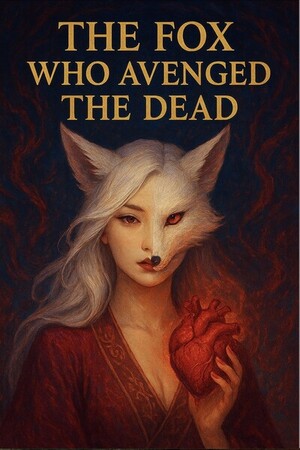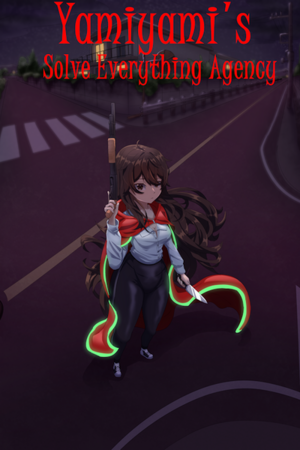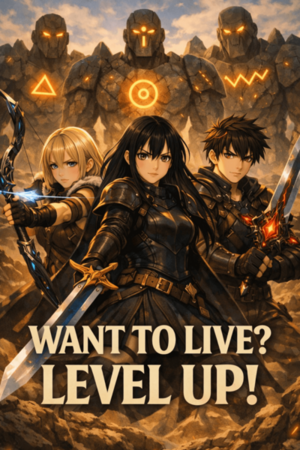Chapter 2:
Dreams of Blood and Heaven
The Fox Who Avenged the Dead
At midnight beneath the stars, I fell into a heavy sleep, and someone set up a small stage inside my mind.
In the muddled dark, it was as if a dirge had been struck in a room. Footfalls clicked and clacked as someone strode in, wrapped in a heavy ceremonial coat, twirling a long tasseled spear with smooth mastery.
Suddenly a cold voice rang out: “Bold Bai Xi, how dare you offend the dignity of my Heavens!”
Then the stagehand struck a copper gong, and a rapid patter of footsteps rose and fell—someone was being brought forward.
“Bring them! Strip her skin!”
In the gloom, the dimly burning lamp cast one or two pinpoints of light. On the ground there appeared a woman in white, crouched limp and soft.
A moment later she straightened up; only then did I see that she was bound with two strips of knife-ropes. On those thumb-thick cords were wrapped triangular blades that had been arranged with precision across her torso. When the woman moved, the ropes tightened and the blades cut through cloth and into flesh, spilling blood at once.
She remained unnaturally quiet—discordant with the cruelty around her. Even hearing such brutal punishment, she showed no reaction, as if the world and its torments were nothing to her.
After a while the punishment began.
Two bare-chested brutes hoisted a great blade. The steel flashed cold, reflecting the surroundings. They bowed toward the front, then one of them picked the woman up like a chicken and laid her on the execution block.
Then the spectacle unfolded.
First, a curse was cast to restore the woman to her true form: a nine-tailed fox. The brutes toyed with the fox, and with the long blade glittering menacingly, they found the hollow at the nape. The sword struck in, opening a gash. A hand slid inside and began to tear methodically. Flesh and skin separated; a blood-soaked pelt was tossed at their feet while the nine-tailed fox collapsed, dying inch by inch.
Hmm—bloody.
I found it rather dull. Truly a fierce but uninteresting fox. My hot-blooded anticipation had been wasted. At first I’d expected this fox to fight back, then be subdued; rise again, then be suppressed again; repeat three or five times until the hero burst in, blade raised, shouting “Hyaa!” to save the day.
A hero rescuing a beauty—that touches my heart.
Alas, no such hero appeared. People’s stories always describe it like that: when a beautiful girl is in danger, a dashing young lord in white sweeps in atop a striking white steed, sword glinting, while admiring maidens gaze; he saves her in the most stylish manner imaginable.
I reasoned the hero’s absence meant the girl wasn’t attractive enough. Losing interest, I yawned and hid to one side, watching how the play would unfold.
After the girl’s pelt was flayed and she was restored to human shape, other punishments awaited—she was to be cast into some place to guard souls. The two brutes each grabbed one of her feet and dragged her through the door. Only when they reached the Southern Sky Gate, near the sacrificial pool, did the always-unresponsive girl finally speak in a broken murmur.
Perhaps she whispered her lover’s name.
Then the brute flung her by the hair into the pool, and the face that had hung slackly showed through the mist—desolation and grief.
Then I woke.
Awake from the dream, I could not return to sleep. Lying in my den, unable to rest, at last I decided to go for a walk.
The night wind bit coldly and made my forehead ache; any last drowsiness left. The moon lit Xuhe Mountain with a clarity that could allow one to read. I pulled a book from the cart and walked while reading.
I strolled here and there; by the north gate I had just finished The Chronicle of the Three Realms.
I clicked my tongue in appraisal—stories often take root in reality, but reality can be even stranger.
It is said: seventy thousand years ago, the old Heavenly Emperor died suddenly without naming an heir. The Three Realms and Six Paths descended into chaos and fought for five thousand years—what history calls the Divine War. The new Heavenly Emperor rose from that war.
For five thousand years the world was scorched by celestial fire. The dragon clans, led by the new Emperor, triumphed but at terrible cost—dragon children and descendants were slain or scattered; few remained.
The new Emperor, eyes bloodshot, crushed his greatest rival: the phoenix clan. He quartered the phoenix leader Yan Yong into eighteen pieces, burying them across the Three Realms and Six Paths to prevent rebirth. The merfolk were nearly exterminated as punishment for supporting the phoenixes. Our fox clan, headed by the nine-tailed fox, had been the phoenix’s left and right hands—and so the Emperor pursued us mercilessly.
The Divine War emptied the realms of their vital energy; it took two hundred years for the world to breathe again.
Unlike the kindly old Emperor, the new sovereign governed with iron. Dissidence—kill. Disobedience—kill. Those who bowed outwardly but hated inwardly—kill.
After relentless slaughter, the realms eventually submitted and became vassals of the Emperor.
Once the Emperor sat firmly upon the White Jade Throne, he realized he had overlooked one pocket of spirits—the ghost clan—at the edge of Jingyuan Mountain.
Forgotten, they must have been weak. The tribes the Emperor had wiped out numbered seven or eight large clans—each a force to reckon with. But these ghosts, nearly extinguished in the war, were left with only the frail and elderly.
The Emperor sent an edict of surrender, and the ghost clan accepted with joy.
Though reduced, the ghost clan retained a fearsome talent: prolific birth. In a few ten-thousand years, their tribe grew from hundreds to ten thousand.
Their new chief, Yan Ke, became the ghost clan’s foremost master.
In Year 134523 of the Primal Epoch, the ghosts rebelled—seventy thousand years after the Divine War.
The Heavenly clans woke from complacency.
Yan Ke and his ghost army stormed the Southern Sky Gate, and a great fire seared the heavens’ heart.
The aged Emperor withered overnight.
The heavens faltered and the ghosts pressed on.
In a desperate moment, the young prodigy Qin An tore through Yan Ke’s heavenly shield with a blackiron sword and charged forth.
The battle turned to a duel between Qin An and Yan Ke.
Qin An pursued Yan Ke into the mortal realm and cut off his head before the ghost army could destroy the human world.
The ghosts were routed and surrendered.
Qin An tore up the earlier surrender and slaughtered a hundred thousand of the ghost clan.
How the city was razed is not told in detail in the Chronicle, but it does devote a long section to Qin An—new war-god, nephew to the Emperor, a rare red-flamed black dragon. His standard attire: a black robe embroidered with gold-mesh python scales and a blackiron sword that cleaves iron like sand.
My aunt warned me time and again: this Qin An is our fox clan’s mortal enemy—one day he will take our lives.




Please sign in to leave a comment.